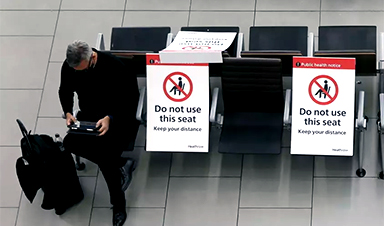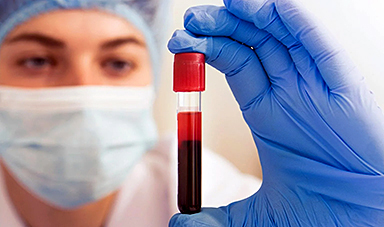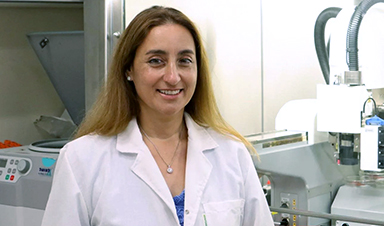1. How COVID-19 is affecting the globe
Confirmed cases of COVID-19 have passed 185 million globally, according to Johns Hopkins University. The number of confirmed deaths stands at more than 4 million. More than 3.29 billion vaccination doses have been administered globally, according to Our World in Data.
Confirmed new COVID-19 cases have risen for the first time in more than two months in Germany.
It comes as the German government also announced plans to donate all its remaining AstraZeneca COVID-19 vaccine doses in August.
The Dutch government is reviewing its options following a spike in COVID-19 cases after an easing of restrictions.
Viet Nam is set to impose restrictions in Ho Chi Minh city for 15 days from Friday to tackle an outbreak of COVID-19 cases.
Turkmenistan has announced it’s making COVID-19 vaccination mandatory for all residents over 18 years old.
The Australian state of New South Wales has reported its biggest daily rise in locally acquired COVID-19 cases so far this year, despite a lockdown in capital Sydney.
South Korea has reported its highest ever single-day rise in new COVID-19 infections. Officials are considering imposing a semi-lockdown in capital Seoul in an effort to clamp down.
COVID-19 infections in England have quadrupled in a month since early June, a large study led by Imperial College London has shown.
2. World at ‘perilous point’: WHO
The Director-General of the World Health Organization warned in a media briefing yesterday that the “world is at a perilous point in this pandemic.”
Dr Tedros Adhanom Ghebreyesus said that while some countries were planning to roll out booster shots and ease restrictions, the global inequity in vaccine production and distribution means that “variants are currently winning the race against vaccines”.
“Vaccine nationalism, where a handful of nations have taken the lion’s share, is morally indefensible and an ineffective public health strategy against a respiratory virus that is mutating quickly and becoming increasingly effective at moving from human-to-human,” he said.
Dr Tedros also acknowledged that more than 4 million confirmed COVID-19 deaths have now been recorded. He cautioned though that this “likely underestimates the overall toll”.
“From a moral, epidemiological or economic point of view, now is the time for the world to come together to tackle this pandemic collectively,” he said.
Dr Mike Ryan, Executive Director, WHO Health Emergencies Programme, also warned countries “not to lose the gains you’ve made” by opening up too quickly.
News
According to Researchers, Your Breathing Patterns Could Hold the Key to Better Memory
Breathing synchronizes brain waves that support memory consolidation. A new study from Northwestern Medicine reports that, much like a conductor harmonizes various instruments in an orchestra to create a symphony, breathing synchronizes hippocampal brain waves to [...]
The Hidden Culprit Behind Alzheimer’s Revealed: Microglia Under the Microscope
Researchers at the CUNY Graduate Center have made a groundbreaking discovery in Alzheimer’s disease research, identifying a critical link between cellular stress in the brain and disease progression. Their study focuses on microglia, the brain’s immune [...]
“Mirror Bacteria” Warning: A New Kind of Life Could Pose a Global Threat
Mirror life, a concept involving synthetic organisms with reversed molecular structures, carries significant risks despite its potential for medical advancements. Experts warn that mirror bacteria could escape natural biological controls, potentially evolving to exploit [...]
Lingering Viral Fragments: The Hidden Cause of Long COVID
Long COVID, affecting 5-10% of COVID-19 patients, might be caused by the enduring presence of the virus in the body. Research suggests that viral fragments, possibly live, linger and lead to symptoms. Addressing this involves antiviral treatments, enhanced [...]
Hidden Scars: How COVID Lockdowns Altered Teen Brains Forever
Research from the University of Washington revealed that COVID-19 lockdowns led to accelerated cortical thinning in adolescents, impacting brain development significantly. This effect was more pronounced in females than males, raising concerns about long-term brain health. The study [...]
Simple Blood Test To Detect Dementia Before Symptoms Appear
UCLA researchers have identified placental growth factor (PlGF) as a potential blood biomarker for early detection of cognitive impairment and dementia. High PlGF levels correlate with increased vascular permeability, suggesting its role in the development [...]
Investing Goldman Sachs asks ‘Is curing patients a sustainable business model?’
Goldman Sachs analysts attempted to address a touchy subject for biotech companies, especially those involved in the pioneering “gene therapy” treatment: cures could be bad for business in the long run. “Is curing patients [...]
The risks of reversed chirality: Study highlights dangers of mirror organisms
A groundbreaking study evaluates the feasibility, risks, and ethical considerations of creating mirror bacteria with reversed chirality, highlighting potential threats to health and ecosystems. In a recent study published in Science, a team of researchers [...]
Alarming Mutation in H5N1 Virus Raises Pandemic Red Flags
NIH-funded study concludes that the risk of human infection remains low A recent study published in Science and funded by the National Institutes of Health (NIH) has found that a single alteration in a protein on the surface [...]
Scientists Discover Genetic Changes Linked to Autism, Schizophrenia
The Tbx1 gene influences brain volume and social behavior in autism and schizophrenia, with its deficiency linked to amygdala shrinkage and impaired social incentive evaluation. A study published in Molecular Psychiatry has linked changes in brain [...]
How much permafrost will melt this century, and where will its carbon go?
Among the many things global warming will be melting this century—sea ice, land glaciers and tourist businesses in seaside towns across the world—is permafrost. Lying underneath 15% of the northern hemisphere, permafrost consists of [...]
A Physics Discovery So Strange It’s Changing Quantum Theory
MIT physicists surprised to discover electrons in pentalayer graphene can exhibit fractional charge. New theoretical research from MIT physicists explains how it could work, suggesting that electron interactions in confined two-dimensional spaces lead to novel quantum states, [...]
Inside the Nano-Universe: New 3D X-Ray Imaging Transforms Material Science
A cutting-edge X-ray method reveals the 3D orientation of nanoscale material structures, offering fresh insights into their functionality. Researchers at the Swiss Light Source (SLS) have developed a groundbreaking technique called X-ray linear dichroic orientation tomography [...]
X-chromosome study reveals hidden genetic links to Alzheimer’s disease
Despite decades of research, the X-chromosome’s impact on Alzheimer’s was largely ignored until now. Explore how seven newly discovered genetic loci could revolutionize our understanding of the disease. Conventional investigations of the genetic contributors [...]
The Unresolved Puzzle of Long COVID: 30% of Young People Still Suffer After Two Years
A UCL study found that 70% of young people with long Covid recovered within 24 months, but recovery was less likely among older teenagers, females, and those from deprived backgrounds. Researchers emphasized the need [...]
Needle-Free: New Nano-Vaccine Effective Against All COVID-19 Variants
A new nano-vaccine developed by TAU and the University of Lisbon offers a needle-free, room-temperature-storable solution against COVID-19, targeting all key variants effectively. Professor Ronit Satchi-Fainaro’s lab at Tel Aviv University’s Faculty of Medical and [...]























